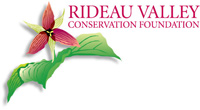Displaying items by tag: conservation
Fight the invaders! Free workshop taking aim at invasive species
Aug. 14, 2019 – Did you know? Your beautiful backyard garden could be harbouring dangerous enemy invaders: sneaky, ruthless agents of destruction, ready to launch a coup at any opportunity.
We’re talking, of course, about invasive species.
They can be hard to spot – sometimes distracting you with their gorgeous blooms or glittery shells – but a workshop this weekend can help you identify these interlopers and keep them under control.
From 9 a.m. to 12 p.m. on Saturday, Aug. 17, Rideau Valley staff will lead a free, public workshop at the conservation authority’s headquarters in Manotick. Participants can get up close and personal with several live displays while they learn about the types of invasive species found in Eastern Ontario, how they spread and how to identify them. Famous examples in Ottawa include the emerald ash borer, purple loosestrife and the round goby – to name just a few.
Invasive species aren’t native to the local ecosystem, so they have few natural predators and can out-compete their native counterparts for food and habitat. They spread quickly along walking trails by way of shoes and strollers, in the water by boats and other vehicles, and by gardeners who don’t realize the beautiful Himalayan Balsam they just planted could quickly hop the fence and take over a nearby shoreline.
On top of their environmental damage, invasive species can also cause problems for humans. Invasive wild parsnip and giant hogweed can cause severe burns and rashes, for example, while zebra mussels have clogged equipment all along the Rideau Canal.
To participate, RSVP to . Light refreshments will be served.
What: Invasive Species Identification Workshop
When: Sat. Aug. 17, 9 a.m. to 12 p.m.
Where: RVCA headquarters
3889 Rideau Valley Dr.
Manotick, ON
K4M 1A5
Parking: There is ample parking at the main office.
-end-
Conservation 2020: Fundraising campaign to protect local natural areas
Sept 30, 2019 – They say hindsight is 20/20 – and future generations may not like what they see if we don’t act now to protect and conserve our natural areas.
That’s why the Rideau Valley Conservation Foundation is excited to launch Conservation 2020: a major campaign to raise $125,000 toward keeping our natural areas in public hands forever.
The Foundation is a proud steward of more than 1,259 hectares of healthy, protected ecosystems throughout the Rideau River watershed. These are crucial habitats — forests, wetlands and shorelines — that work hard to reduce our risk of floods, clean our water, stop erosion and store vast amounts of carbon to keep our communities healthy and resilient in the face of climate change.
They are the lifeblood of our region, supporting vast, interconnected ecosystems that are increasingly fragmented or lost entirely to development and human activity.
Some properties are entirely untouched, left to their own devices to provide important green infrastructure functions for our communities. Others are public, close-to-home oases providing an antidote to the daily grind and stresses of daily life.
But they all cost money to maintain: whether it’s for property taxes, insurance or trail maintenance, the Foundation requires a steady stream of income to protect these green spaces in perpetuity.
Donations to the Conservation 2020 campaign will be invested in the Steve Simmering Conservation Land Endowment Fund, which marks its 10-year anniversary next year.
The fund was established in 2010 in memory of Steve Simmering, an active outdoorsman and vice chairman of the Foundation. The endowment has slowly been growing to provide a small stream of income to support our vibrant and vital outdoor spaces.
But more is needed to keep our natural areas secure forever.
“Today, the need to protect our conservation lands is increasingly important,” said Foundation chairman Jason Kelly. “Our 2020 campaign will look to grow this endowment fund, ensuring our local natural areas are protected and held safely in public hands.”
The Foundation, which turns 50 next year, is seeking investments large and small. Whether your family has $100 to spare or you lead a large corporation looking to make a lasting, local impact, your contribution will go directly toward conserving green space in your community for future generations.
Donors of large investments (between $10,000 and $25,000+ over five years) will be recognized in our media outreach and on the Foundation’s donor board. They’ll also receive some fun extras for the office, like complementary annual passes to our conservation areas, free facility rentals and even a staff retreat.
To invest in the region’s natural lands, contact Foundation executive director Diane Downey at 613-692-3571 ext. 1126 or .
For more information about how the endowment works, visit https://www.rvcf.ca/ways-to-give/steve-simmering-conservation-lands-endowment-fund.
— end —
Hutton Creek Marsh getting makeover thanks to generous grant
October 22, 2019 – A provincially significant wetland will get a makeover this winter, thanks in part to a $55,000 grant from Wildlife Habitat Canada.
The Hutton Creek Marsh near Lombardy has become a monoculture: choked and overgrown with cattails, only 10 per cent of the marsh is now open water.
Crews will construct three 0.5 acre ponds and 500 metres of channels to help return the wetland to a healthier hemi-marsh state (50 per cent vegetation and 50 per cent open water).
This will provide new fish passages and areas for spawning and feeding, and will support critical life stages for amphibians, turtles and other wildlife. This healthier water-to-vegetation ratio is also ideal for waterfowl and would support the greatest biodiversity. Creating more open water will also restore local access for paddling, fishing and hunting.
Construction could begin as early as November. Crews will wait until the marsh has frozen to keep impacts to wildlife and water quality low.
This work is Phase 2 of a long-term project to bring the important wetland back to a more natural, productive state. In 2015, the nearby Motts Mills Dam was decommissioned and replaced with an earthen berm. In 2017, the Rideau Valley Conservation Authority (RVCA) lowered local water levels to help staff study the wetland and determine the best way to address the crowded cattails.
A dedicated group of local stakeholders made this project possible, including the RVCA, Ducks Unlimited Canada, Leeds and Grenville Stewardship Council and the United Counties of Leeds and Grenville (UCLG), which owns the property where the work will take place. Support of local residents has also been key to the project’s success.
The project is jointly funded by Wildlife Habitat Canada, Leeds and Grenville Stewardship Council, Ontario Federation of Anglers and Hunters Zone F, Ducks Unlimited Canada, UCLG, RVCA and the Rideau Valley Conservation Foundation.
The Wildlife Habitat Canada grant represents more than 40 per cent of the project’s total cost. The primary source of funding for the grant program is from the purchase of the Canadian Wildlife Habitat Conservation Stamp (Canadian Duck Stamp) by waterfowl hunters.
To learn more about how the Rideau Valley Conservation Foundation works to protect wetlands and waterways in the region, or to donate to the cause, visit www.rvcf.ca.
For more information about Motts Mills Conservation Area and the Hutton Marsh, visit https://www.rvca.ca/conservation-areas/no-fee-required/motts-mills-ca.
— end —
Local Conservation Authorities Support Recommendations in Ontario’s Independent Review of 2019 Flood Events
December 2, 2019 – Local Conservation Authorities are pleased with the findings of the independent review of the Spring 2019 flood. Retained by the Ontario Government, Special Advisor on Flooding Douglas NcNeil recognizes Ontario’s unique watershed-based Conservation Authority model and its success in minimizing flood risks and mitigating flood impacts.
Ottawa area Conservation Authorities (Mississippi, Rideau and South Nation) met with Mr. McNeil and other agencies in September to review the spring flood and discuss local experiences. Ideas were shared on how to improve protection of Ontario residents and their properties from flooding. The McNeil report contains 66 actions, and the three Conservation Authorities are pleased to see recommendations raised during those consultations in the report, including the need to:
- Update provincial guidance,
- Increase attention to floodplain mapping and the impacts of climate change,
- Conserve and restore green infrastructure like wetlands and forests that store water and reduce flooding, and
- Continue support for the role of Conservation Authorities in coordinating planning
and action.
Specifically, the report, available at ontario.ca/floodreport, encourages the Province to “consult with Conservation Authorities on their application of the natural hazards-based approach and the risk-based approach to managing flooding.”
Flood management is a shared responsibility among municipalities, emergency management officials, the Province, and Conservation Authorities. Authorities work closely with member municipalities to identify flood risk areas and to guide development activities outside of floodplains. The watershed-based approach has protected Ontarians for decades and has avoided millions in flood damages.
This approach has also built resilient communities that not only have flood control infrastructure but also important “green infrastructure” that reduces the impacts of climate change and flooding.
Local Conservation Authorities look forward to maintaining and improving flood management programs and are eager to assist the Province in implementing all of the recommendations outlined in the Flood Advisor’s report.
-End-
For more information:
Sally McIntyre, General Manager
Mississippi Valley Conservation Authority
613-253-0006 ext. 223
Sommer Casgrain-Robertson, General Manager
Rideau Valley Conservation Authority
613-692-3571 ext. 1214
Angela Coleman, General Manager
South Nation Conservation
613-984-2948
One Tree Planted Supports the Rideau Valley Conservation Authority in Planting 70,000 Trees
OTTAWA, February 24, 2020 — One Tree Planted, a registered U.S. non-profit whose mission is to help with global reforestation, has generously given the Rideau Valley Conservation Foundation (RVCF) $52,500 U.S. to help the Rideau Valley Conservation Authority plant 70,000 trees. These new trees will cover approximately 35 hectares and will take place on conservation land in east Ottawa.
“We are very grateful to One Tree Planted for this generous gift,” says Diane Downey, RVCF Executive Director. “This investment with help us toward our 2020 goal of planting over 240,000 trees in the Rideau watershed.”
Five species of conifers will be planted which will bring habitat and shelter to many animals in our area including the white-tailed deer, red fox, and pileated woodpecker. The tree planting will also protect watershed health by protecting soil from erosion, improving water quality, and reducing the risk of flooding. Healthy watersheds ensure healthy communities where trees and forest cover are valued and protected.
According to Gabriela Gard at One Tree Planted, “we are dedicated to making it easier for individuals and businesses to give back to the environment, create a healthier climate, protect biodiversity and help reforestation efforts around the world. All by planting trees!”
To learn more about the RVCF and its ongoing work to protect, enhance and conserve the lands and water of the Rideau Valley visit www.rvcf.ca. To learn about local tree planting programs visit www.rvca.ca.
– end —
For more information, contact:
Diane Downey
Executive Director, Rideau Valley Conservation Foundation
613-692-3571 or 1-800-267-3504 ext. 1126





























